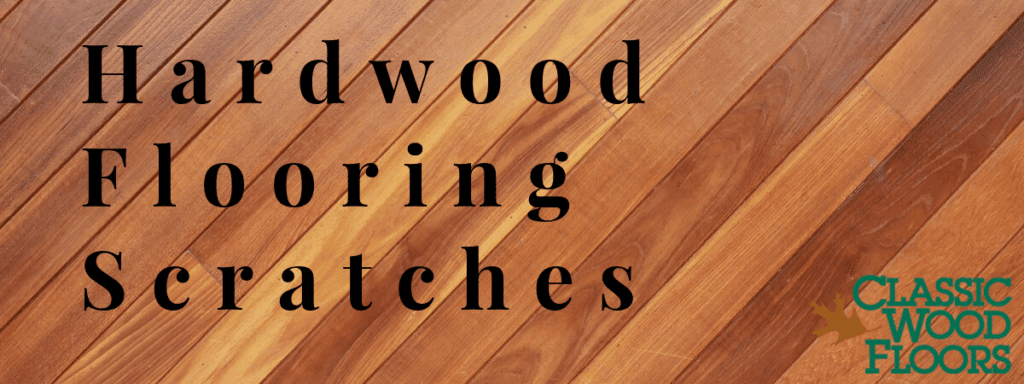
Remember the new shoes you got at the beginning of every school year and how you tried to keep them in pristine condition for as long as you could? Or when you got your first car and parked far away from other vehicles to keep it from getting scratched or dinged? You may feel the same way—about preventing scratches on your hardwood flooring. When it comes to hardwood floor scratch repair, we’re here to help.
Like a pair of new shoes or a first car, we know you want to keep your hardwood flooring as perfect as the day it was installed. You may even insist that family and guests remove their shoes upon entering or put down plastic. Fortunately, you don’t have to go to extremes to keep your hardwood floors looking great.
How to Prevent Scratches on Hardwood Flooring
Preventing scratches on wood floors doesn’t cost a fortune. Basic care and hardwood cleaning are the first steps toward minimizing scratches and scuffs. Not only will you be removing grit and grime, but you’ll be in the best position to find problem areas before they worsen. Natural wood is at constant risk of surface wear and damage, so prevention plays an important role.
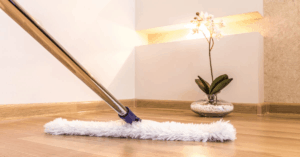 Check out our floor care guide for specific tips and tricks. At Classic Wood Floors, we recommend weekly dusting and cleaning. Try cleaning with a microfiber duster and clean pads pre-moistened with Bona hardwood floor cleaner for an optimal shine.
Check out our floor care guide for specific tips and tricks. At Classic Wood Floors, we recommend weekly dusting and cleaning. Try cleaning with a microfiber duster and clean pads pre-moistened with Bona hardwood floor cleaner for an optimal shine.
Several of Bona Products (our favorites) are created for multi-surfaces: laminate wood flooring, engineered wood flooring, and hardwood flooring. The Bona Free & Simple Hardwood Floor Cleaner is a safe option for families and pet owning households. It is hypo-allergenic and leaves no dulling residue. For small jobs, Bona Wood Floor Cleaner can even hide small scuffs and scratches.
Bona’s Pro Series Hardwood Floor Refresher provides a clear, highly durable gloss to polyurethane-finished wood floors that are scratched. Learn how to clean hardwood floors and protect your beautiful investment.
The second step in preventing scratches is placing pads on the bottom of all furniture you will be moving on your hardwood flooring. This can mean anything from a temporary towel under your sofa legs or a more permanent felt pad under chair and table legs. This preventative step is often overlooked —to the detriment of your flooring. An uncovered chair leg can leave a gouge that cannot be ignored.
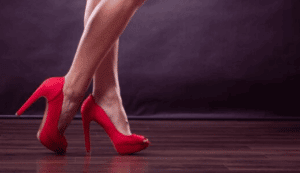
The third step to prevent scratches on hardwood flooring is foot traffic consideration. This needs to be on your radar, because certain styles of shoes, like high heels, can do permanent damage to your floor. Some homeowners may request that guests remove these types of shoes before entering their homes.
How to Hide Scratches on Hardwood Floors
Fix small hardwood floor scratches and minor blemishes easily with DIY repair. You can use a color matching fine tip permanent marker or wood stain pens and blending sticks. These inexpensive items hide scratches on hardwood floors and make for easy hardwood floor scratch repair.
How to Remove Scratches from Hardwood Floors
Fixing scratches on hardwood floors is easily achievable. With a little elbow grease, a small can of stain, and a fine-grit sandpaper, you can repair scratches on any wood floor.
After sanding in the direction of the grain, apply a tiny amount of stain. If you are nervous using stain, try a walnut. Walnuts have an oily brown dye that can repair scratches on hardwood floors and enhance the look of worn areas. Let the oil sit for a few minutes then buff with a cloth.
In addition, a number of scratch-minimizing products can be easily applied with a cloth. They fill in the lighter colored scratches in the same way that the walnut dye does. Whichever product you choose, these hardwood floor scratch removers make it almost impossible to find the original scratches. You can remove scratches from hardwood floor like a pro! If you’re nervous about tackling this process yourself, feel free to get in touch with us.
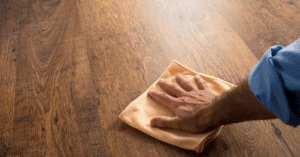
Scratches on Engineered Flooring
While engineered wood flooring is more durable than traditional wood floors, it can still scratch, especially in high traffic areas. Scratches on engineered flooring can be repaired using a wax-based repair kit made specifically for this type of floor. There are many different brands available. Read the label to make sure it’s suited to your flooring or call us for a recommendation.
For this process, you can use a plastic putty knife to push the filler into the scratch. It will make the scratch unnoticeable, even invisible. Just be sure to read the label and instructions.
For deep scratches and gouges, try a pre-colored latex wood filler. You can fill, stain, and finish small, deep holes best with this option. If the area of damage is more significant, it may be time to have us evaluate the damage.
When to Call in a Professional for a Hardwood Flooring Scratch
Any damage that has taken the finish off and exposed wood will need to be repaired. If left exposed too long, the wood will be susceptible to moisture damage. Therefore, repairing a small area will save you in the long run. You should also call a professional any time you feel less than 100% confident in your ability to handle the repair yourself.
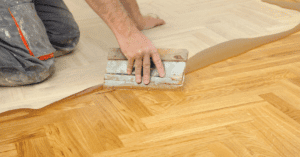
Call or email us for a free consultation. We’ll evaluate your hardwood flooring’s damage and let you know what it needs. We love hardwood flooring as much as you do, and we want you to enjoy your hardwood flooring for years to come.
Long Term Hardwood Flooring Care
Hardwood flooring is durable enough to last for several lifetimes. But, like all surfaces, it is prone to wear and tear as well as some damage. Cleaning and maintaining will go a long way in preventing scratches on hardwood flooring.
We hope this hardwood flooring scratch repair guide will help you keep your hardwood floors looking and wearing well for years to come.
